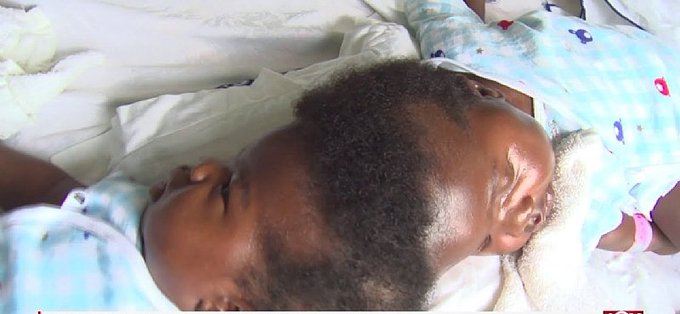The government of Ghana has taken up the full cost of surgery for the separation of conjoined twins delivered at one of the top health facilities in the country, the Greater Accra Regional Hospital.
The Chief of Staff, Frema Osei Opare who made the disclosure paid a visit to twins and their parents.
The parents and doctors at the facility had been appealing for funds to save the lives of the babies with the support of the media.
“It is my pleasure to announce that the President has said that all related costs, all the cost of this exercise, the state is willing to take over and is ready to take over the cost,” Opare said as she delivered the news that delighted the parents of the twins.
Madam Osei Opare said the presidency is allocating GH¢15million an equivalent of $2.5 million to pay for the entire procedure.
Out of the amount, GH¢12million will be spent on a specialised equipment needed for the surgery which will subsequently become an asset of the Ghana Health Service.
The remaining amount of GH¢3million will be used to procure consumables, medication, and tests that the family would have had to pay for, during the 12-18-month procedure to separate the Siamese twins.
She applauded the team of doctors for their efforts in saving the babies.
“The President recognises the fact that this effort that you want to put in, is very much in line with the Ghana Beyond Aid agenda.
We also noted in a cabinet meeting that this is an opportunity to also equip us to do complicated surgeries and so on,” the Chief of staff told the doctors.
The Government of Ghana has pledged its support towards the surgery of the conjoined twins. The pledge was made today at the Greater Accra Regional Hospital, Ridge in the Greater Accra Region by the Chief of Staff Mrs. Frema Opare. pic.twitter.com/AGdsafVOK5
— Ghana Health Service Official (@_GHSofficial) July 5, 2021
Conjoined twins are two babies born physically connected to each other.
They develop when an early embryo partially separates to form two individuals. Most conjoined twins are stillborn or die shortly after birth.
The babies are often attached at the chest, pelvis or buttocks. The twins may share organs.
Surviving twins may be separated surgically. Success depends on where they’re joined and which organs they share.
Conjoined twins are extremely rare, accounting for about one in every 200,000 live births.
They are most commonly connected at the chest, abdomen or pelvis. About 70% of conjoined twins are female.
Source: Africafeeds.com


